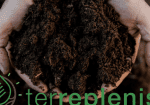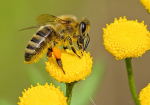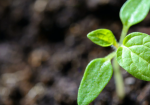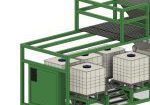Terreplenish for Medicinal and Recreational Marijuana
November 5, 2020
As legalization of both medicinal and recreational marijuana continues to increase with almost every election, consumer concerns about pesticide and herbicide use in commercial growing operations is rising as well. Contaminated cannabis is largely the result of growers wanting to produce the biggest, leafiest plants as quickly as possible, and many of them do so with the help of dangerous chemical applications. Many of these chemicals are not approved for use on edible vegetation but rather are meant for lawns and other ornamental plants.
Unfortunately, there are no application standards that commercial growers are required to adhere to. Nonetheless, consumers are becoming increasingly concerned that the marijuana products that they purchase may contain chemicals that threaten their health, and this means that a significant future exists for those who decide to nurture their marijuana crops using organic methods.
Disease control in marijuana crops can be practiced without the use of chemicals using a variety of methods. The key to producing a high yield crop without pesticides or herbicides is to provide the plants with the best possible growing environment, and this begins with the soil. Strong, healthy plants can easily fend off pathogens as well as fungal disorders such as powdery mildew.
The addition of nitrogen-fixing bacteria is essential to the creation of nourishing soil. Nitrogen is necessary for strong root systems and thriving leaves, which is why growers should amend their soil with products containing beneficial organisms. Not only do these amendments help fix airborne nitrogen in the soil, they work to keep disease-causing pathogens out.
Another necessary control for organic grow operations is to keep greenhouse humidity levels in check. Overly damp environments will facilitate fungal diseases, and conditions that are too dry may entice pests such as spider mites. Once the grower finds the right balance of atmospheric humidity, creates a fertile, nourishing soil, and plants natural barriers in the form of chives, onions, or garlic, chemical disease control techniques are no longer necessary or desirable.
Because of increasing consume demand for organically grown marijuana products, buyers have begun to reject plant material that has signs of mold or pesticide residue. The trend toward an expressed consumer preference for chemical-free marijuana means that knowledge of organic cultivation techniques is a smart long term investment for those who want a career in commercial cannabis production.
Related Posts
Grow Better with Terreplenish®
Proven nitrogen-fixing results from our blend of proprietary
free-living nitrogen-fixing microbes.
100% all natural and OMRI listed for organic use on:










